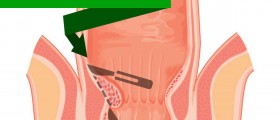
Hemorrhoidectomy: Preparation and Recovery
Hemorrhoids are an unpleasant condition caused by swelling and inflammation of the veins located in the anus and rectum area. When an enlarged vein becomes irritated, inflamed and clogged, a hemorrhoid is formed.

What Should You Know About Cholesterol Levels, Age, And Gender?
Regardless of your age and gender, cholesterol is one of those things that you should look after your entire life

What Are The Benefits Of Fibrates (Fibric Acid Derivatives) In Treating High Cholesterol?
People who have a high triglyceride count, but don’t have abnormal LDL levels in their body, would very much benefit from a treatment with fibrate drugs.

Know Your Numbers: What Is Your Cholesterol Ratio And Why Is It Important?
Determining your cholesterol ratio is a good idea that helps doctors determine the best treatment plan for your particular case. What do you need to know?

How Does Niacin (Vitamin B3) Help Treat High Cholesterol?
Niacin is the medical term for vitamin B3, but also a class of supplements which is prescribed to people with high cholesterol levels.

High Cholesterol Injectable Medications: What Are PCSK9 Inhibitors?
PCSK9 inhibitors are a form of injectable proteins that are created inside the laboratory, and area meant to lower your LDL cholesterol levels.

High Cholesterol And Omega-3 Fats: How Can Fish Oil Help Reduce Cholesterol Levels?
Omega-3 fats should be a part of every person’s diet, because they are efficient in keeping triglycerides under control, while also providing other health-related benefits, such as lowering blood pressure.

Can Psyllium Husk Lower Your High Cholesterol?
Psyllium has the capacity of binding to fat and bile acids, causing them to be eliminated faster from the body. Can it lower your cholesterol?

Alternative Treatment: 6 Vitamins And Nutritional Supplements For High Cholesterol
While alternative treatments for any problem can be effective, it's important to consider your doctor's advice.

Depression And Heart Disease: Is There A Connection?
Depressed people are more likely to develop heart disease, while heart disease is associated with an increased risk of clinical depression. Just what is the link between these two disease?

